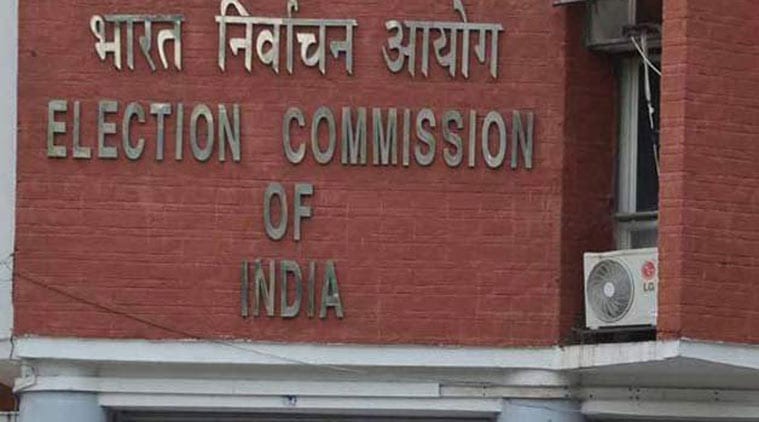To check
donations in cash to parties, EC seeks Rs 20 crore cap
The Commission has also called for an amendment to Rule 86 under Conduct
of Election Rules to make it mandatory for candidates to meet all election
expenses in excess of Rs 2,000 through cheque or electronic bank transfer.

The Election Commission (EC) has sought changes in the election and income tax laws to restrict cash donations to a political party to Rs 20 crore or 20 per cent of its total contribution, whichever is less. The Sunday Express has learnt that in a letter written to the Law Ministry about two weeks ago, the Commission proposed amendments to Section 13A of the IT Act and Section 29B of the Representation of the People (RP) Act to promote cashless funding of parties.
The government had recently accepted the EC’s long pending suggestion to lower the cap on anonymous cash donations to political parties to Rs 2,000 from Rs 20,000 per person. However, this move towards ushering in transparency in political funding was tagged ineffective by activists and experts who felt that parties would now resort to multiple receipts of Rs 1,999 each, like they did to evade disclosure under the old limit of Rs 20,000 on cash donations by issuing multiple receipts of Rs 19,999 each. The poll panel’s recent recommendation to the Law Ministry, aimed at promoting cashless funding, is significant in the backdrop of this criticism.
If accepted by the government, it would mean that total contribution from unknown sources to a political party would be limited to 20 crore or 20 per cent of the party’s total donation, whichever is less. The amendment would affect parties such as the BSP, 100 per cent of whose funding is from undisclosed donors. BSP has never disclosed details of any of its financial supporters on the ground that it hasn’t ever received any donation above Rs 20,000.
A study by the Association of Democratic reforms of the contribution statements by parties from 2004-05 to 2014-15 found that nearly 69 per cent of the total income of national and regional parties comes from undisclosed sources. The Congress was the highest funded party in this period with over Rs 3,982 crore. Of this, the study attributed 83 per cent to unknown sources. The BJP was a close second with over Rs 3,272 crore (65 per cent unknown sources) and the CPM a distant third at just under Rs 893 crore (53 per cent unknown sources).
The EC, in its letter to the government, has now suggested that Section 13A of the IT Act, on income tax exemption in voluntary donations, be amended to extend exemption in case of all donations received by cheque and e-transfer.
Further, for cash contribution, the EC wants income tax exemption to be restricted to Rs 20 crore or 20 per cent of the total contributions received by the political party, whichever is less. To compliment this change, the EC has also asked Law Ministry to add a new proviso under section 29B of the RP Act to provide that a party shall not receive contributions in cash beyond 20 crore or 20 per cent of the total contribution, whichever is less. The proposal is similar to the Law Commission’s suggestion made in its 255th report in 2015.
The poll panel hasn’t recommended 100 per cent cashless funding since cadre-based political parties such as the CPI and CPM depend on cash donations of small amounts.
The Commission has also called for an amendment to Rule 86 under Conduct of Election Rules to make it mandatory for candidates to meet all election expenses in excess of Rs 2,000 through cheque or electronic bank transfer.







 →
→












0 comments:
Post a Comment